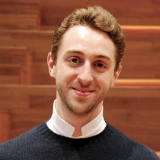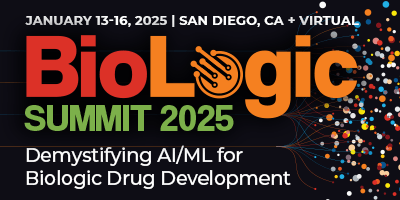トレーニング セミナー
2025年1月13日(月) 9:00 am - 6:00 pm
TS1A: Introduction to Machine Learning for Biologics Design
バイオロジクスのデザイン向けML入門
- Basics of machine learning and where does it fit into drug discovery
- Modern homology modeling and structure prediction
- Predicting antibody affinity and specificity modulation
- Generative design in biologics: library design and language models
- Machine learning applications of T-cell and B-cell Immunogenicity
- Methods and application of ML for chemical, folding, solution stabilities
INSTRUCTOR BIOGRAPHIES:
 Christopher R. Corbeil, PhD, Research Officer, Human Health Therapeutics, National Research Council Canada
Christopher R. Corbeil, PhD, Research Officer, Human Health Therapeutics, National Research Council Canada
 Francis Gaudreault, PhD, Associate Research Officer, Human Health Therapeutics, National Research Council Canada
Francis Gaudreault, PhD, Associate Research Officer, Human Health Therapeutics, National Research Council Canada
TS2A: Implementing Artificial Intelligence and Computational Tools in Biopharmaceutical R&D
バイオ医薬品R&DにおけるAIと計算ツールの導入
Attendees do not need a deep computational background but will be introduced to cloud computing and containerized workflows in a hands-on fashion and should be familiar with basic concepts of programming and command line operations.
Topics to be covered:
- Identifying opportunities for AI/ML tools in existing and new programs
- Evaluating internal staff and experimental capabilities
- The role of ML scientists; do these need to be internal?
- Scoping, developing and sourcing training data
- Bespoke versus off-the-shelf models
- Cloud computing and containerized workflows
- Identifying drug targets in silico
- Protein structure prediction
- Antibody design and developability
- Small molecule design
- Designing de novo proteins with deep learning
INSTRUCTOR BIOGRAPHIES:
 Ryan Peckner, PhD, Director, Machine Learning, Seismic Therapeutic
Ryan Peckner, PhD, Director, Machine Learning, Seismic Therapeutic
* 不測の事態により、事前の予告なしにプログラムが変更される場合があります。
アジェンダ・講演者・スポンサー更新










